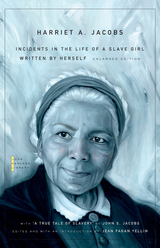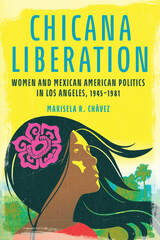
THIS EDITION HAS BEEN REPLACED BY A NEWER EDITION.
This enlarged edition of the most significant and celebrated slave narrative now completes the Jacobs family saga, surely one of the most memorable in all of American history. John Jacobs's short slave narrative, A True Tale of Slavery, published in London in 1861, adds a brother's perspective to Harriet Jacobs's own autobiography. It is an exciting addition to this now classic work, as John Jacobs presents additional historical information about family life so well described already by his sister. Importantly, it presents the people, places, and events Harriet Jacobs wrote about from the different perspective of a male narrator. Once more, Jean Yellin, who discovered this long-lost document, supplies annotation and authentication. She has also brought her Introduction up to date.

This enlarged edition of the most significant and celebrated slave narrative completes the Jacobs family saga, surely one of the most memorable in all of American history. John S. Jacobs’s short slave narrative, A True Tale of Slavery, published in London in 1861, adds a brother’s perspective to Harriet A. Jacobs’s autobiography. It is an exciting addition to this now classic work, as John Jacobs presents further historical information about family life so well described already by his sister. Once more, Jean Fagan Yellin, who discovered this long-lost document, supplies annotation and authentication.
This is the standard edition of Incidents in the Life of a Slave Girl, reissued here in the John Harvard Library and updated with a new bibliography.


For one hundred and sixty-eight years, a first-person slave narrative written by John Swanson Jacobs—brother of Harriet Jacobs—was buried in a pile of newspapers in Australia. Jacobs’s long-lost narrative, The United States Governed by Six Hundred Thousand Despots, is a startling and revolutionary discovery. A document like this—written by an ex-slave and ex-American, in language charged with all that can be said about America outside America, untampered with and unedited by white abolitionists—has never been seen before. A radical abolitionist, sailor, and miner, John Jacobs has a life story that is as global as it is American. Born into slavery, by 1855, he had fled both the South and the United States altogether, becoming a stateless citizen of the world and its waters. That year, he published his life story in an Australian newspaper, far from American power and its threats. Unsentimental and unapologetic, Jacobs radically denounced slavery and the state, calling out politicians and slaveowners by their names, critiquing America’s founding documents, and indicting all citizens who maintained the racist and intolerable status quo.
Reproduced in full, this narrative—which entwines with that of his sister and with the life of their friend Frederick Douglass—here opens new horizons for how we understand slavery, race, and migration, and all that they entailed in nineteenth-century America and the world at large. The second half of the book contains a full-length, nine-generation biography of Jacobs and his family by literary historian Jonathan Schroeder. This new guide to the world of John Jacobs will transform our sense of it—and of the forces and prejudices built into the American project. To truly reckon with the lives of John Jacobs is to see with new clarity that in 1776, America embarked on two experiments at once: one in democracy, the other in tyranny.
READERS
Browse our collection.
PUBLISHERS
See BiblioVault's publisher services.
STUDENT SERVICES
Files for college accessibility offices.
UChicago Accessibility Resources
home | accessibility | search | about | contact us
BiblioVault ® 2001 - 2024
The University of Chicago Press









